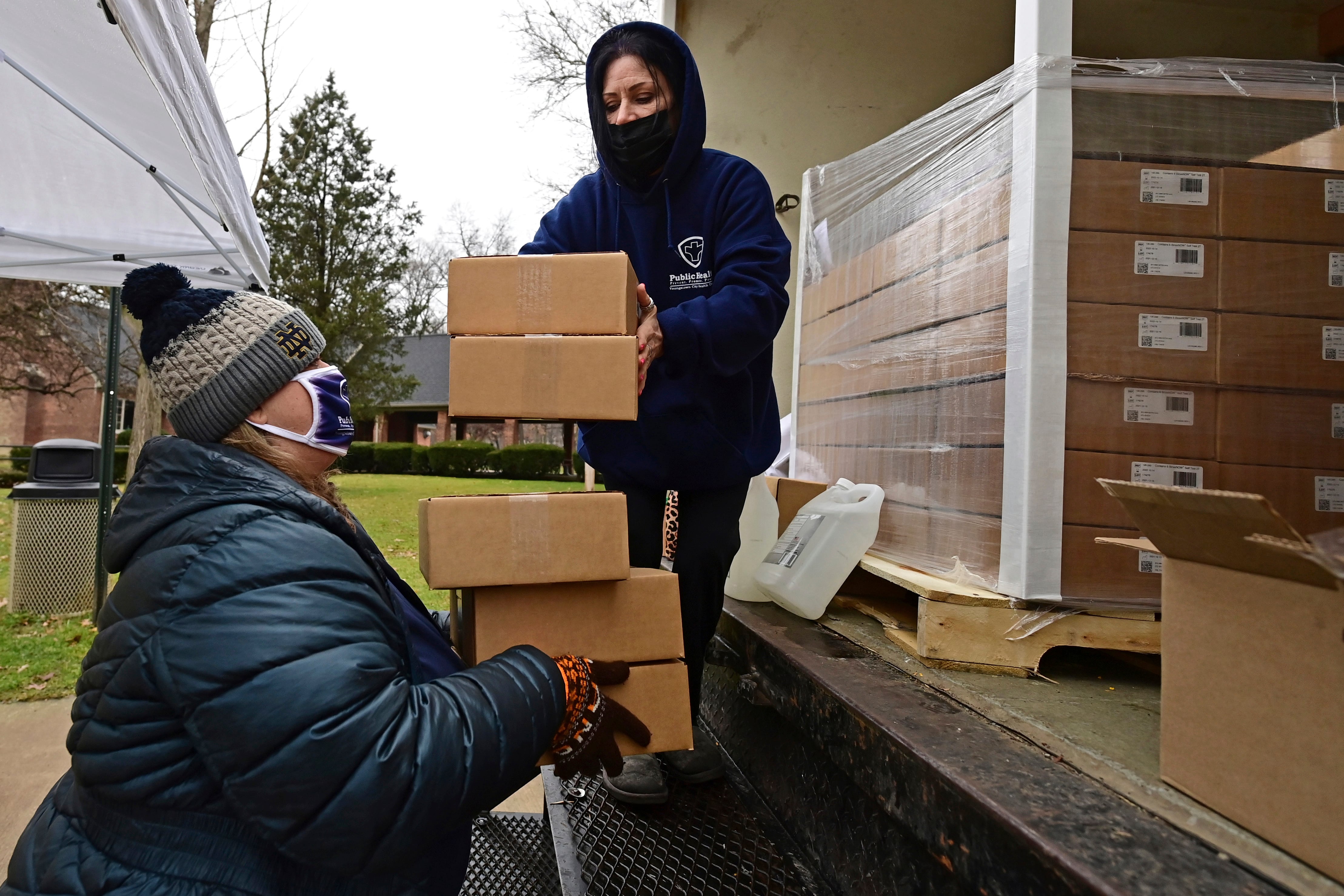Lawmakers are urging Defense Secretary Lloyd Austin to require Tricare to cover up to eight at-home COVID-19 tests per month.
In a Feb. 17 letter to Austin, lawmakers noted that “millions of Tricare beneficiaries have been left out” of policies recently announced by the administration to require private insurers to cover the cost of eight over-the counter COVID-19 tests per person per month, and to allow Medicare recipients to get up to eight tests per month at no cost.
Tricare beneficiaries have no other option but to pay out-of-pocket for at-home tests, they said.
As of late Feb. 18, there hadn’t been any changes to the Tricare policy, said Peter Graves, spokesman for the Defense Health Agency, but there may be an announcement soon.
Military families with youngsters in child care are among those being burdened by these costs, said Nicole Russell, government relations deputy director for the National Military Family Association. “You’re constantly getting your child tested,” she said. Tricare only covers tests that are ordered by a Tricare-authorized provider for a medically necessary purpose. But often, if a child is asymptomatic, pediatricians won’t see the child to order a COVID-19 test because they are busy seeing sick patients, she said.
The costs of these tests adds up, said one Air Force Reserve major, who spoke on condition of anonymity. She’s spent about $300 on at-home COVID tests for herself, her husband and their 1-year-old daughter. Over the course of a few weeks earlier this year, they used at least 10 home tests, including some of the free tests through the government website, and they’ve also kept some on hand at their home in Alexandria, Virginia. The most expensive single at-home test was about $30, she said.
The major and her husband, who is also an Air Force reservist, both work in civilian jobs and both have tested positive for COVID. Although their baby hasn’t gotten COVID, she’s been quarantined because she was exposed. There were also instances at the day care when other children may have been exposed.
“Testing is really the key to being able to put her back in day care,” said the major, who’s been vaccinated and boosted. While the day care generally requires testing from a doctor, it’s been difficult to get appointments, she said, and the day care allows the at-home tests.
“We’re very cautious,” she said, adding they test to protect themselves and others. “I understand the economics of insurance and the expense. But it’s in the public interest to make the tests more accessible to everyone. Luckily I had tests on hand because I care about society and my daughter. But we also have the means to buy those tests. Not everyone can.
“We should be doing everything we can to encourage people to take extra steps to make sure they’re not infecting others and spreading this virus unknowingly. I had nearly no symptoms at all.
“The general public good is served by ensuring that people have access to those tests. That includes financial access. Tricare is supporting military families who, in theory, should be physically ready for anything,” she said.
RELATED

The lawmakers noted that President Biden has directed private insurers to cover the cost of eight over-the-counter COVID-19 tests per person per month. In addition, the Department of Health and Human Services has announced it will require the Centers for Medicare and Medicaid Services to allow Medicare recipients to get up to eight tests per month at no cost.
“Providing access to COVID testing is a key component to ending this pandemic, and it is unfair that military service members and their families are unable to access these tests at no out-of-pocket cost as their civilian counterparts are,” said Rep. Elaine Luria, D-Va., in an announcement of the letter sent to Austin.
She and Rep. Debbie Dingell, D-Mich., led the effort, and the letter was signed by an additional 43 lawmakers.
Karen has covered military families, quality of life and consumer issues for Military Times for more than 30 years, and is co-author of a chapter on media coverage of military families in the book "A Battle Plan for Supporting Military Families." She previously worked for newspapers in Guam, Norfolk, Jacksonville, Fla., and Athens, Ga.





